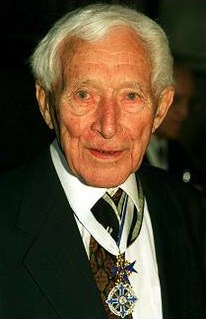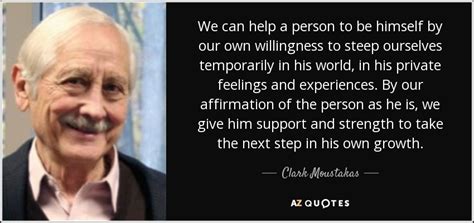A Quote by Saint Augustine
For if it is not lawful to take the law into our own hands and slay even a guilty person, whose death no public sentence has warranted. Then certainly he who kills himself is a homicide, and so much the guiltier of his own death as he was more innocent of that offence for which he doomed himself to die.
Related Quotes
The (capital punishment) controversy passes the anarch by. For him, the linking of death and punishment is absurd. In this respect, he is closer to the wrongdoer than to the judge, for the high-ranking culprit who is condemned to death is not prepared to acknowledge his sentence as atonement; rather, he sees his guilt in his own inadequacy. Thus, he recognizes himself not as a moral but as a tragic person.
Samson crushed himself and his enemies to death beneath the ruins of a building. He can only be excused on the grounds that the Spirit of the Lord, who wrought miracles through him, had bidden him to do so. But, apart from such men excepted by the command of a just law in general or of God, the very Source of justice, in a special case, any one who kills a human being, himself or another, is guilty of murder.
We are left with nothing but death, the irreducible fact of our own mortality. Death after a long illness we can accept with resignation. Even accidental death we can ascribe to fate. But for a man to die of no apparent cause, for a man to die simply because he is a man, brings us so close to the invisible boundary between life and death that we no longer know which side we are on. Life becomes death, and it is as if this death has owned this life all along. Death without warning. Which is to say: life stops. And it can stop at any moment.
See how he cowers and sneaks, how vaguely all the day he fears, not being immortal nor divine, but the slave and prisoner of his own opinion of himself, a fame won by his own deeds. Public opinion is a weak tyrant compared with our own private opinion. What a man thinks of himself, that it is which determines, or rather indicates, his fate.
In Ferguson, there are witnesses who say Brown had his hands up when he was shot. That should be enough probable cause to go to trial to then determine if Officer Wilson is guilty or not. It is at trial that he can then defend himself and his attorneys can present their own witnesses and their own defense.
It is altogether unlawful to kill oneself... Wherefore suicide is contrary to the inclination of nature, and to charity whereby every man should love himself... Life is God's gift to man, and is subject to His power, Who kills and makes to live. Hence whoever takes his own life, sins against God... for it belongs to God alone to pronounce sentence of death and life.
The man who enters combat encased in solid armor plate, but lacking the essential of selfconfidence, is far more exposed and naked to death than the individual who subjects himself to battle shorn of any protection but his own skill, his own belief in himself and in his wingman. Righteousness is necessary for one's peace of mind, perhaps, but it is a poor substitute for agility . . . and a resolution to meet the enemy under any conditions and against any odds.
There is no single best kind of death. A good death is one that is "appropriate" for that person. It is a death in which the hand of the way of dying slips easily into the glove of the act itself. It is in character, ego-syntonic. It, the death, fits the person. It is a death that one might choose if it were realistically possible for one to choose one's own death.









































